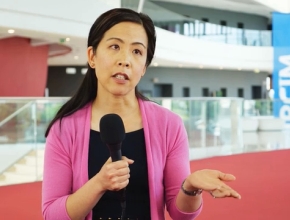Dr Susan Kahn is a professor in the Department of Medicine at McGill University, codirector of the Canadian Venous Thromboembolism Research Network (CanVECTOR), and founder of the McGill Thrombosis Fellowship.
What antithrombotic prophylaxis should be used in acutely ill hospitalized medical patients? Should it be used in such patients who remain at home or in long-term care institutions?
Susan Kahn, MD, MSc: In acutely ill hospitalized medical inpatients the American Society of Hematology (ASH) guidelines recommend the use of either low-molecular-weight heparin, unfractionated heparin, or fondaparinux as venous thromboembolism prophylaxis during the hospital admission. There is no similar recommendation for direct oral anticoagulants (DOACs) in this patient population, primarily because these drugs have not been studied as prophylactic measures in medical inpatients.
 English
English
 Español
Español
 українська
українська










